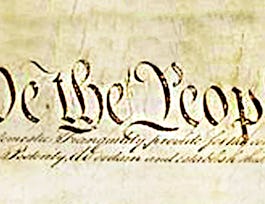‘The Arbitration of International Disputes’ is the third course of Leiden University’s series on International Law in Action. The first course covered generalities on the international courts and tribunals in The Hague, while the second course provided an insider's perspective into the work of international criminal courts and tribunals. This third course explores the major aspects of international arbitration as one of the most common method of international dispute settlement . Through this course you will gain an in-depth understanding of the various facets of international arbitration through the analysis of its role as a mechanism of dispute settlement, its institutions, the fields of law it is applicable to, and, of course, its most famous awards.



International Law in Action: the Arbitration of International Disputes


Instructors: Eric De Brabandere
Sponsored by Louisiana Workforce Commission
61,600 already enrolled
(1,206 reviews)
Details to know

Add to your LinkedIn profile
5 assignments
See how employees at top companies are mastering in-demand skills


Earn a career certificate
Add this credential to your LinkedIn profile, resume, or CV
Share it on social media and in your performance review

There are 5 modules in this course
Welcome ! Before you start we invite you to first go through our introduction module and introduce yourself in the forum to meet your fellow learners. If you encounter any difficulties while studying, please let us know in the forum. For technical difficulties or questions regarding the course certificate, you can always contact the Coursera Learner Center. Good luck & we hope you will enjoy this course.
What's included
1 video2 readings1 discussion prompt1 plugin
Have you read all the tips for studying online? Are you ready to delve into the world of dispute settlement through international arbitration? This week, you will learn the history of international arbitration and the general principles of international arbitration. We will also discuss the work of the Permanent Court of Arbitration and its role as administrator of arbitrations.
What's included
5 videos1 reading1 assignment1 discussion prompt
This week will explore the role of international arbitration in settling disputes between States under the 1982 Law of the Sea Convention (UNCLOS). Why do States choose arbitration to settle their disputes regarding the law of the sea? To answer this question, we will study how arbitration fits into the complex dispute settlement architecture of UNCLOS, and discuss the option given to States parties to choose either arbitration or settlement through adjudication before the International Court of Justice or the International Tribunal for the Law of the Sea. We will conclude this week with an analysis of the famous dispute between the Philippines and China in relation to the parties' maritime entitlements in the South China Sea. Through this case, you will learn how arbitration navigates between law and politics.
What's included
5 videos1 reading1 assignment1 discussion prompt
Do you remember, from the first week, the different types of parties to a dispute? What makes an arbitration 'mixed'? This week, we will focus on investment treaty arbitration, the most notable example of arbitration between States and non-State actors. I will introduce you to the main principles of investment treaty arbitration, and the procedure at the International Centre for Settlement of Investment Disputes (ICSID).
What's included
5 videos1 reading1 assignment1 discussion prompt
What happens after an arbitral award has been rendered? Can an award be invalidated? How are arbitral awards enforced? This week, we will see how a ‘valid’ decision can be rendered and what the parties who are dissatisfied with a decision can or cannot do. More specifically, you will learn about the aftermath of the Yukos Arbitration, an investment arbitration that perfectly illustrates the interplay between state immunity and the enforcement of arbitral awards.
What's included
5 videos1 reading2 assignments1 discussion prompt
Instructors


Offered by
Why people choose Coursera for their career




Learner reviews
1,206 reviews
- 5 stars
81.05%
- 4 stars
16.37%
- 3 stars
1.57%
- 2 stars
0.33%
- 1 star
0.66%
Showing 3 of 1206
Reviewed on Feb 6, 2020
This course includes short videos that allow me to have a general understanding of international arbitration in 4 weeks. The content is concise, well structured and easy to understand.
Reviewed on Jul 26, 2023
this is a great and excellent course. This course most important general public not only the professionals.
Reviewed on Jan 21, 2020
It was a wonderful course on International Arbitration by University of Leiden. Got to learn a lot. I would like to thank Coursera and University of Leiden for such a productive course.
Recommended if you're interested in Social Sciences

Lund University

University of Geneva

Erasmus University Rotterdam

University of Pennsylvania

Open new doors with Coursera Plus
Unlimited access to 10,000+ world-class courses, hands-on projects, and job-ready certificate programs - all included in your subscription
Advance your career with an online degree
Earn a degree from world-class universities - 100% online
Join over 3,400 global companies that choose Coursera for Business
Upskill your employees to excel in the digital economy


